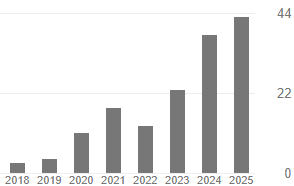Assessing Light Pollution from Streetlight Designs along Major Streets in Kota Kinabalu Towards Sustainable Urban Lighting
Keywords:
Environmental Impact, Light Pollution, Spectral Analysis, Street Lighting, Urban SustainabilityAbstract
Light pollution from streetlights is becoming an increasingly serious issue, impacting ecosystems, human health, and astronomical visibility. In Kota Kinabalu, efforts to address the effects of street lighting remain limited, resulting in low public awareness of its consequences. This study examined light pollution in two major streets in Kota Kinabalu: Jalan Tun Fuad Stephens and Jalan Pasir by measuring the brightness and visible spectrum of streetlights using a digital lux meter and smartphone camera equipped with 500 lines/mm diffraction gratings. The collected data were analysed to assess how streetlight designs affect the environment, with a focus on comparing theoretical and measured lux and lumen values. The findings revealed that the installed streetlight bulbs contributed to light pollution, particularly through lux levels that exceeded standard limits by 60%, as well as the emission of potentially harmful wavelengths such as blue and violet light. These results offer valuable insights that can help shape better urban lighting designs. Additionally, the findings can assist local governments in balancing public safety, energy efficiency, and environmental protection in street lighting designs. Future studies should expand to other areas, such as Tawau and Semporna, where sea turtle populations are common. This would help protect these creatures from the adverse effects of artificial lighting on marine ecosystems. Finally, wavelength measurements in future research could be refined using a spectral light meter to enhance accuracy.
Downloads
Published
How to Cite
Issue
Section
License
Copyright (c) 2025 Politeknik & Kolej Komuniti Journal of Engineering and Technology

This work is licensed under a Creative Commons Attribution-NonCommercial-NoDerivatives 4.0 International License.







